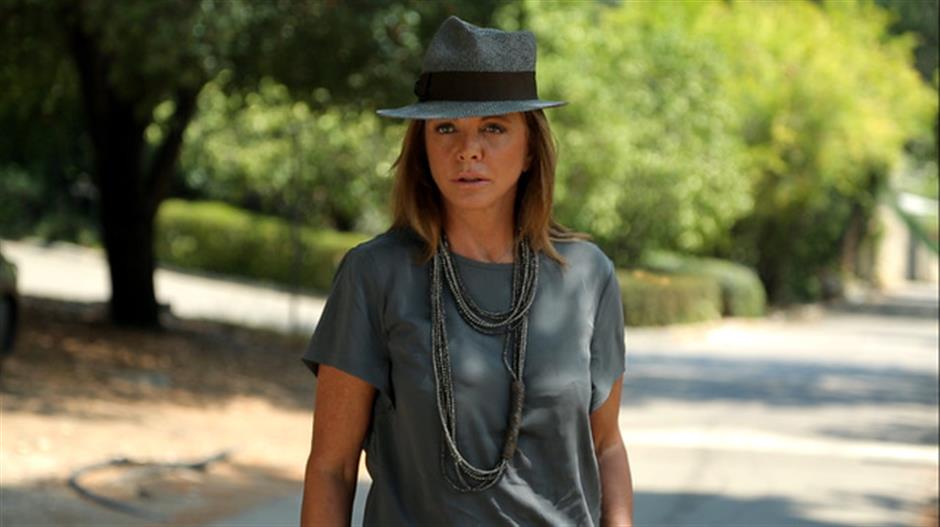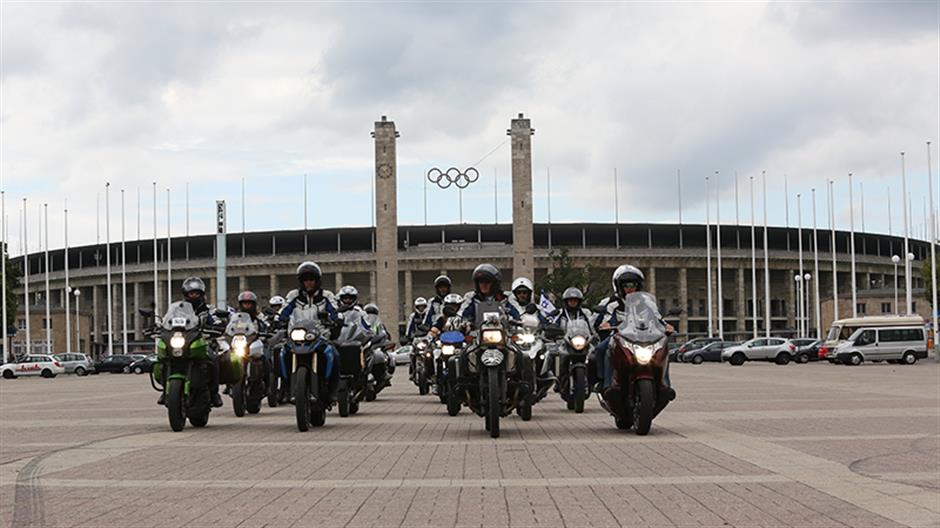Back to Berlin: a Jewish journey
“It's better to go to Berlin by motorbike than by train,” said 11 Jewish bikers in the documentary “Back to Berlin,” which follows them on an epic journey from Tel-Aviv to Berlin to deliver the Maccabiah torch to the 1936 Olympic stadium.
In 2015, Germany held the European Maccabiah Games, also known as the Jewish Olympics. Catherine Lurie, director and producer of the documentary, immediately made it a mission for herself to capture this historic moment.
“I thought we were taking a new type of Jews back to Berlin, versus the ones who were being put into concentration camps and were killed in the 1930s,” she says.
Raised partly Jewish, Lurie not only wanted to capture the historic moment but also to highlight what she says is rising anti-Semitism throughout Europe.
“I don’t really live in the Jewish area in London. I’m not a full Jew. I’m just a person who always likes to give my voice to it when something is wrong (like anti-Semitism). And I admire the Jewish people a great deal (for their guts),” says the London-based producer.

London-based documentary director and producer Catherine Lurie
Maccabiah is one of the largest games in the world with 72 countries and regions represented. It is held every four years in Israel and every two years either in America or in Europe.
In 1931, one year before the first Jewish Olympic Games, 11 bikers set out from what was then called Palestine but under British rule following the carve-up of the Middle East after World War I to all corners of Europe to spread word about the Games and in search of athletes. And those athletes who did go there in 1932 were saved from the nails of Nazis.
“Bulgaria brought 1,000 people to the 1932 Games, and that was really just a way to escape,” Lurie says.
After digging into history, she interviewed some 80 bikers to pick 11 to follow the tracks of the early 1930s riders and to share their stories.
Among the bikers are holocaust survivors, descendants of the survivors and grandson of a 1930s Maccabiah rider.
The oldest biker in the journey is 78, who was a young child at the time. The sight of the Auschwitz concentration camp triggered his memory. In the documentary, he says he could still hear the screams and sudden silence that followed, and he still remembers the faces of German soldiers. He never talked about the experience because he didn’t want to share the trauma with his family.
“It was so sad and tragic to go from the present to the past, and it created lot of tension at the time,” says Lurie. “Some people were absolutely gutted and tired, while others tried to put on a front to me to imagine how they would have reacted.”

A unique symbolism dominates the documentary: motorcycle and train tracks. While motorcycles stand for freedom, the train track holds the terrifying tragedy of the gas chambers.
“After the film was done, I had some beautiful letters written by bikers about how it had impacted on their lives,” she says.
Living in Israel, these bikers are protected and didn’t know anything about anti-Semitism. However, with the flag flying on their motorcycles, they found themselves heavily protected by police, especially in Greece.
In 1936, two American Jewish runners, Marty Glickman and Sam Stoller, were dropped on the morning from the Games by the American manager. Decades later, the granddaughter of Glickman lit the torch in the stadium, in the track suit of her grandfather.
“I have to capture this moment in the new era. That is bit ironic that people are asked to go back to a place they weren’t welcomed in 1936,” says Lurie.
The journey took 35 days, but the whole film and editing process took three years to finish. “Back to Berlin” was screened in the Washington Jewish Film Festival and this year’s Shanghai International Film Festival.
Because of what the Chinese went through in the 1937 Nanjing Massacre, Lurie expects the documentary will evoke understanding and resonance here.
“This isn’t just a Jewish story. It is the story of people overcoming the worst of their fellow man to restate our common humanity,” she says.

















